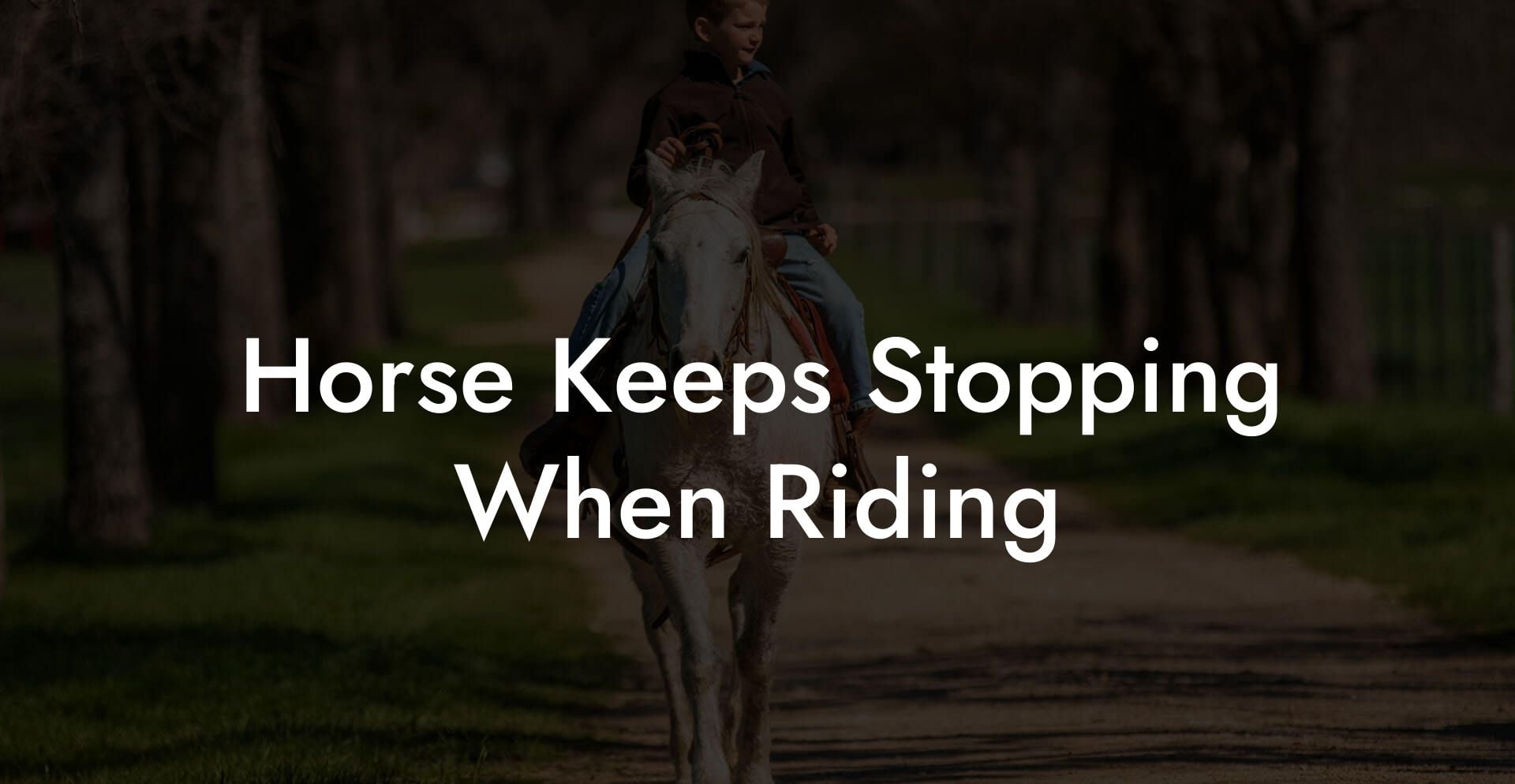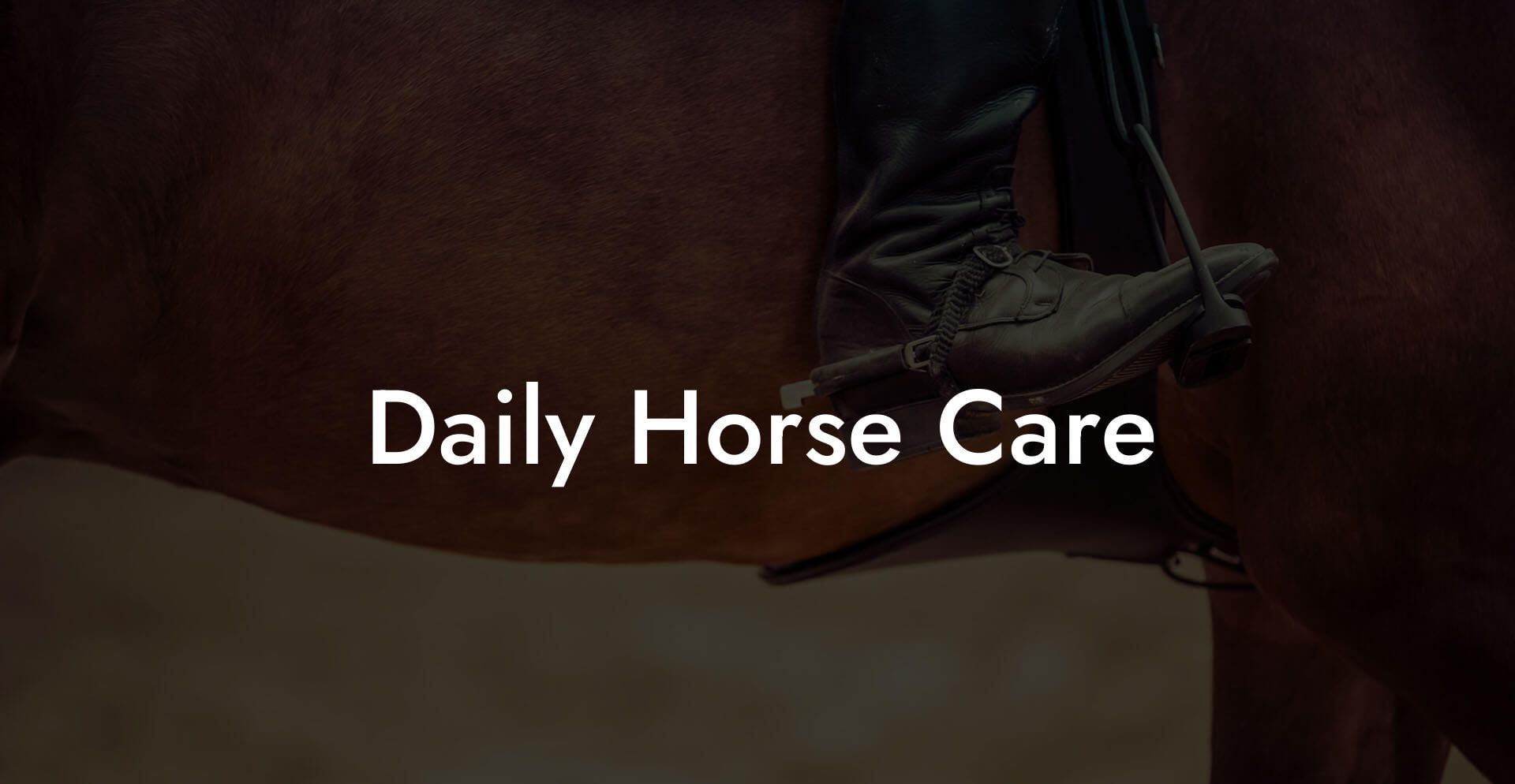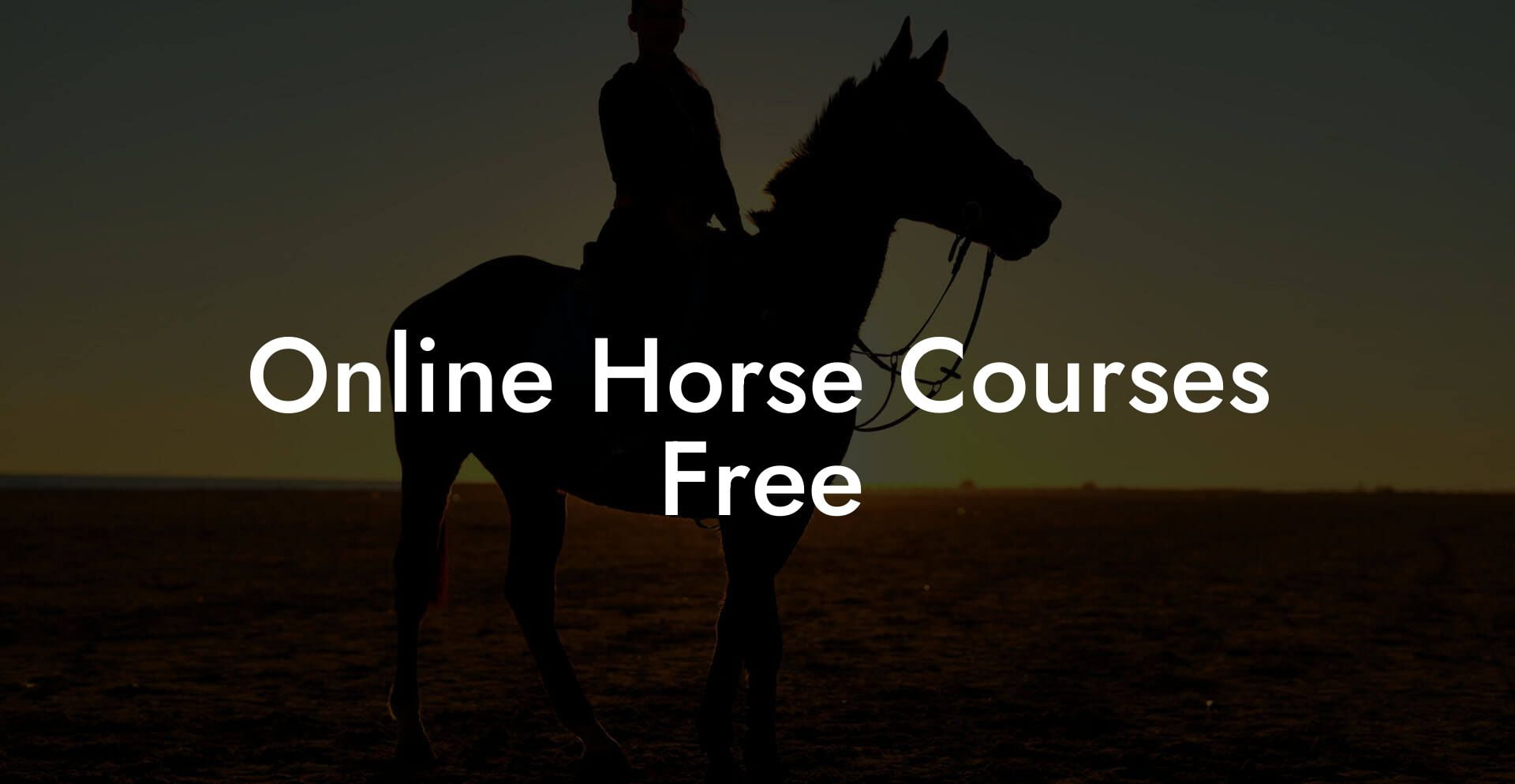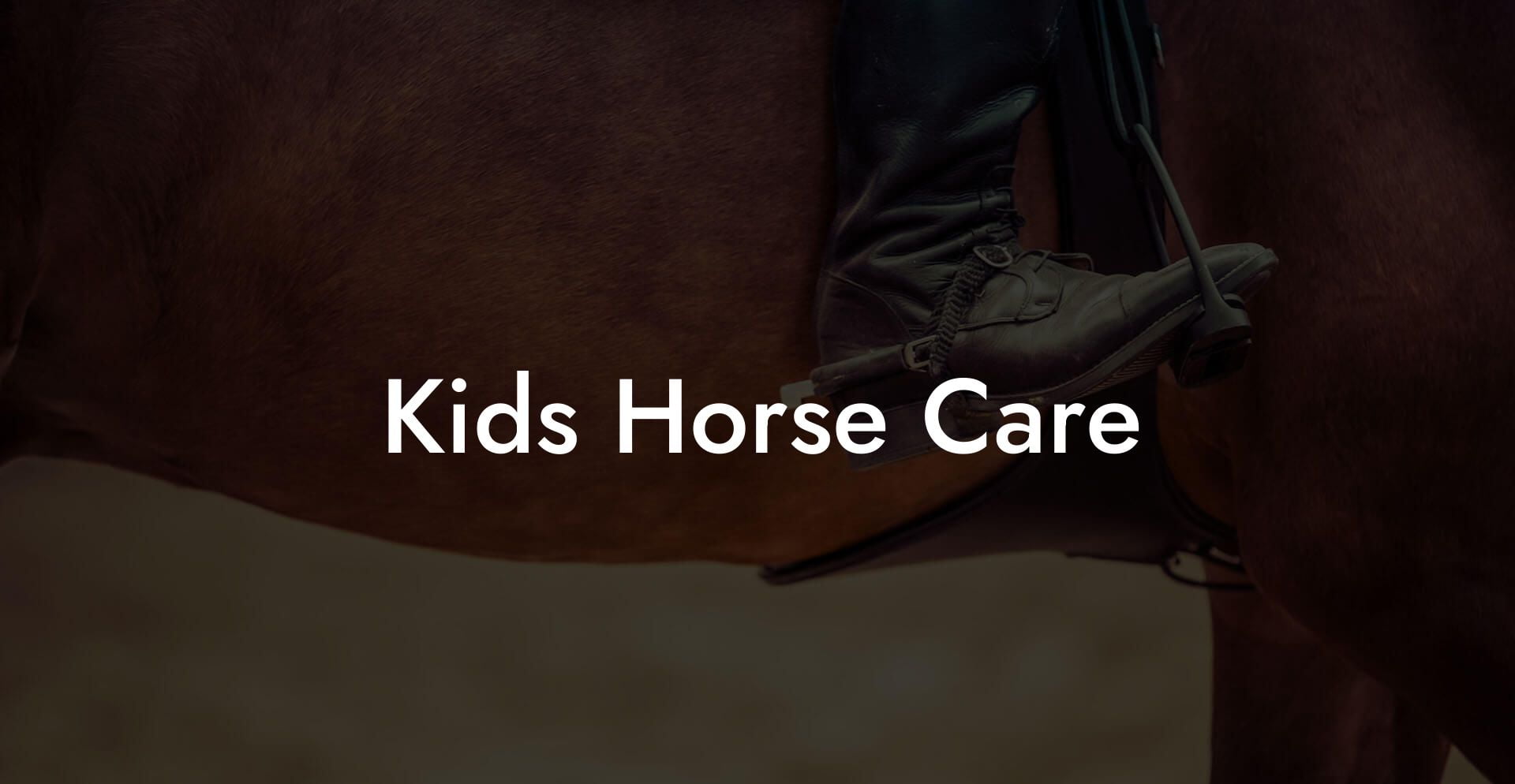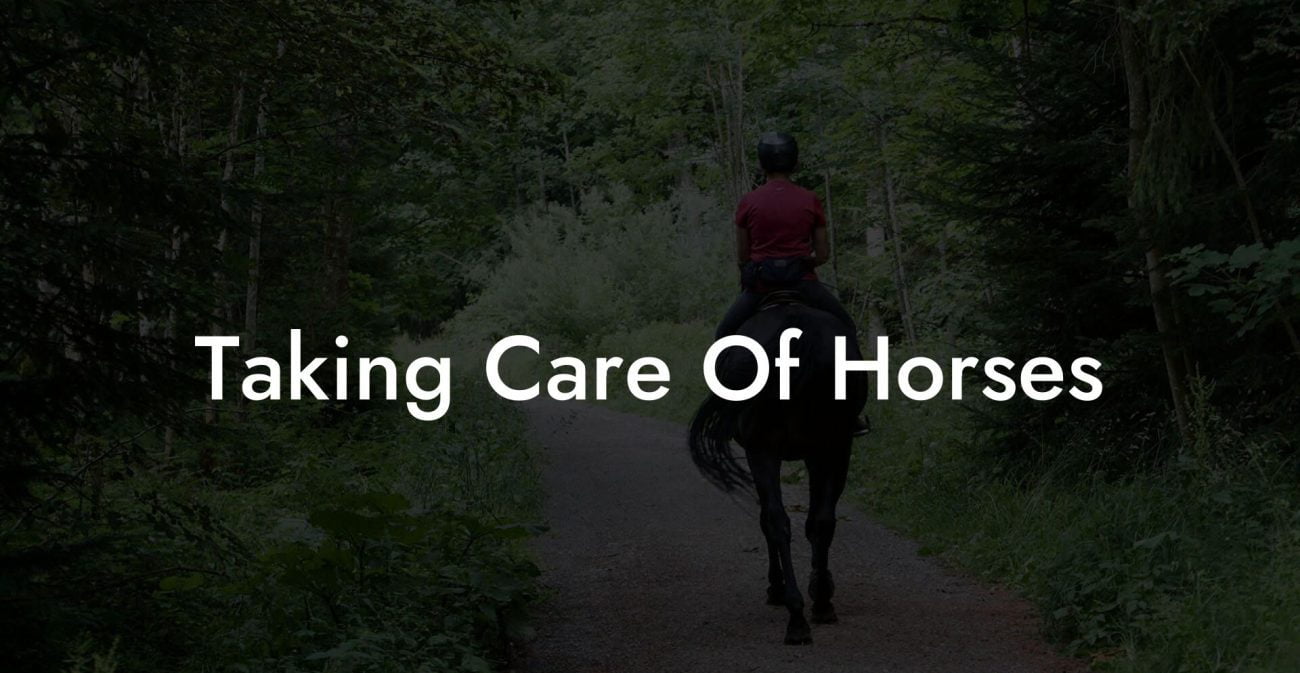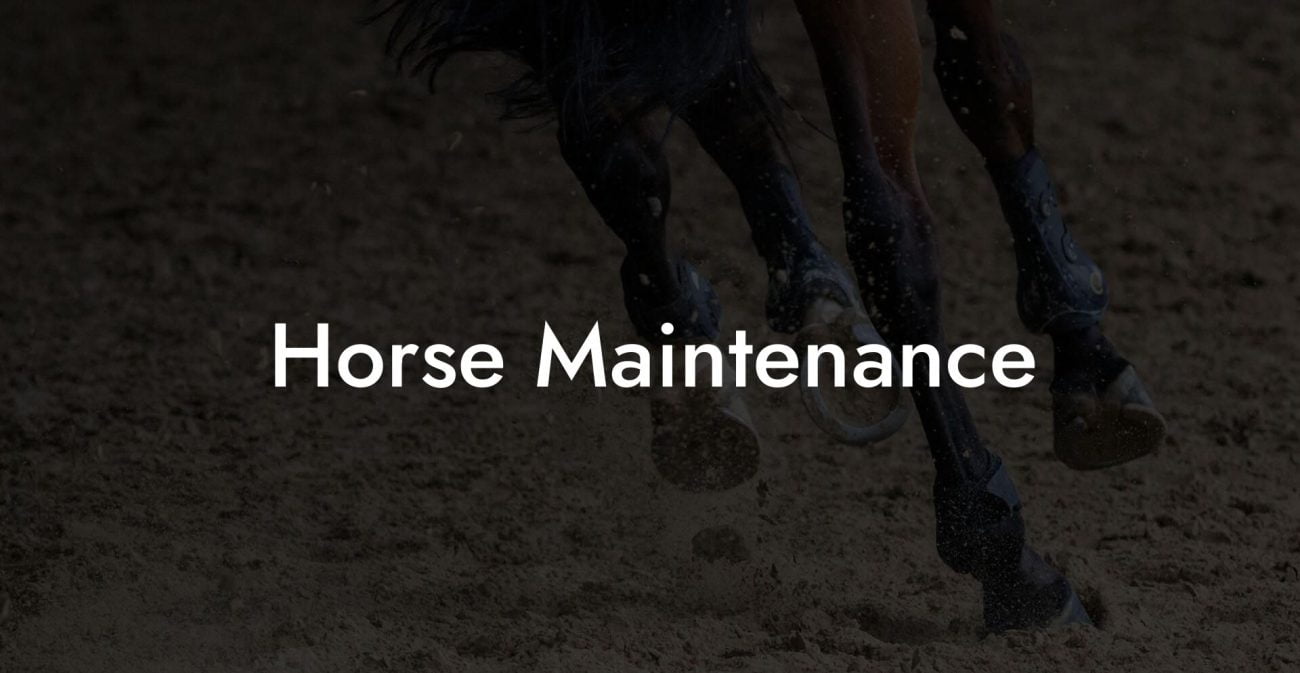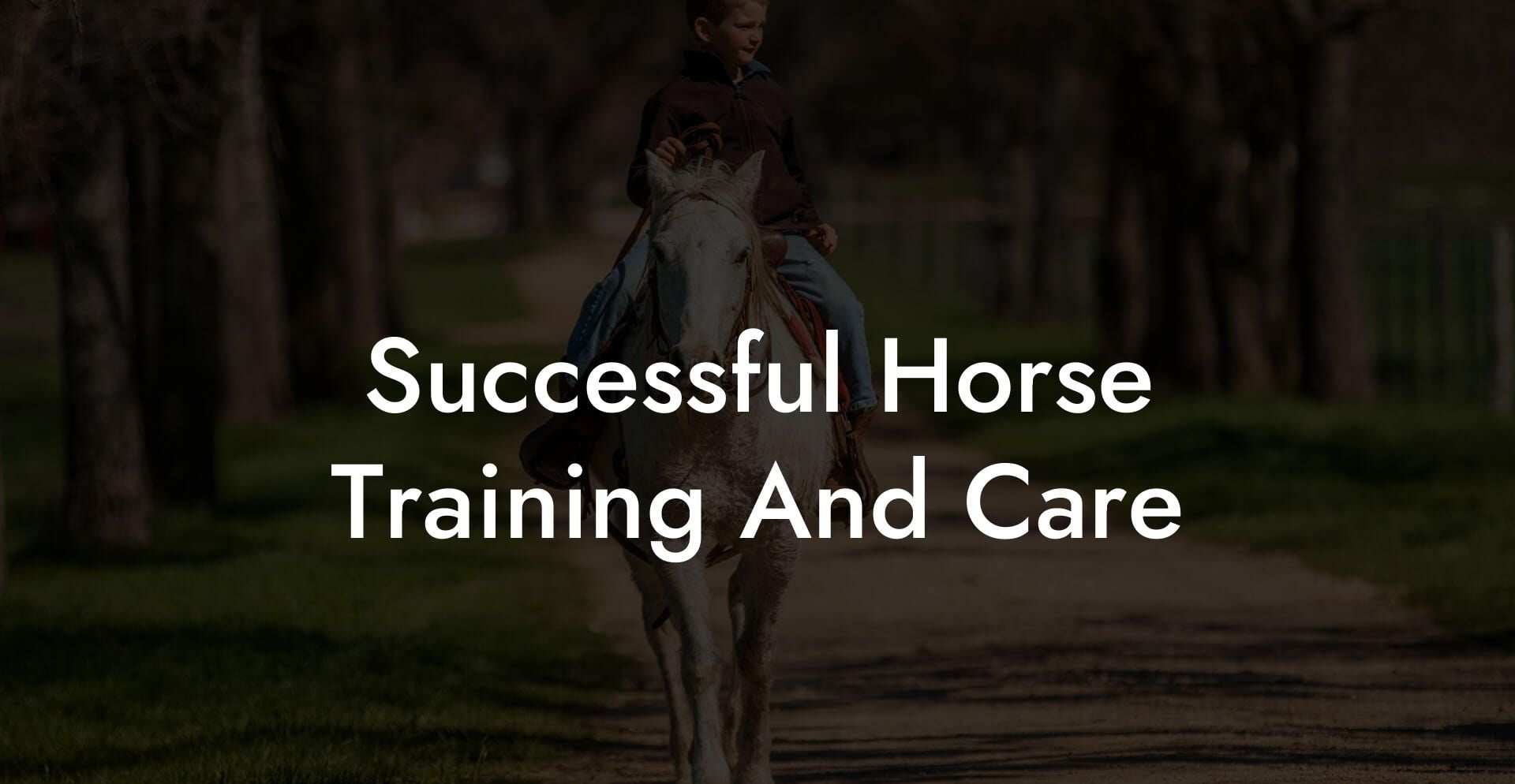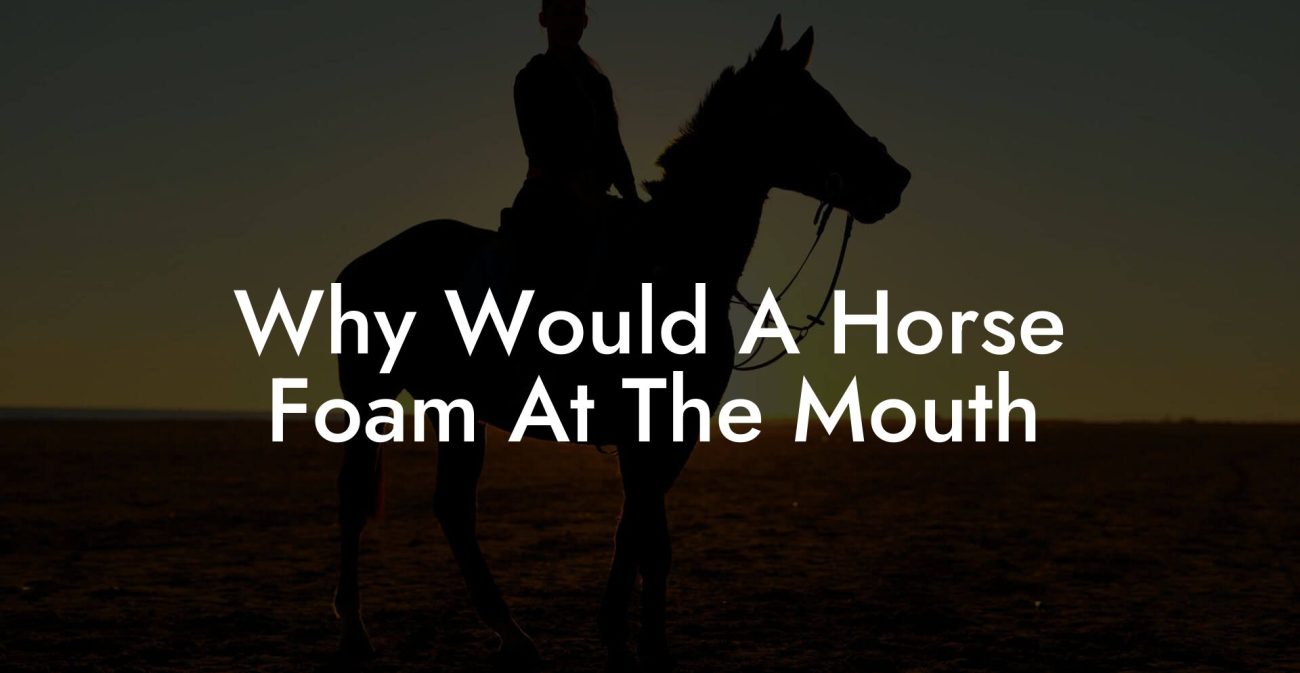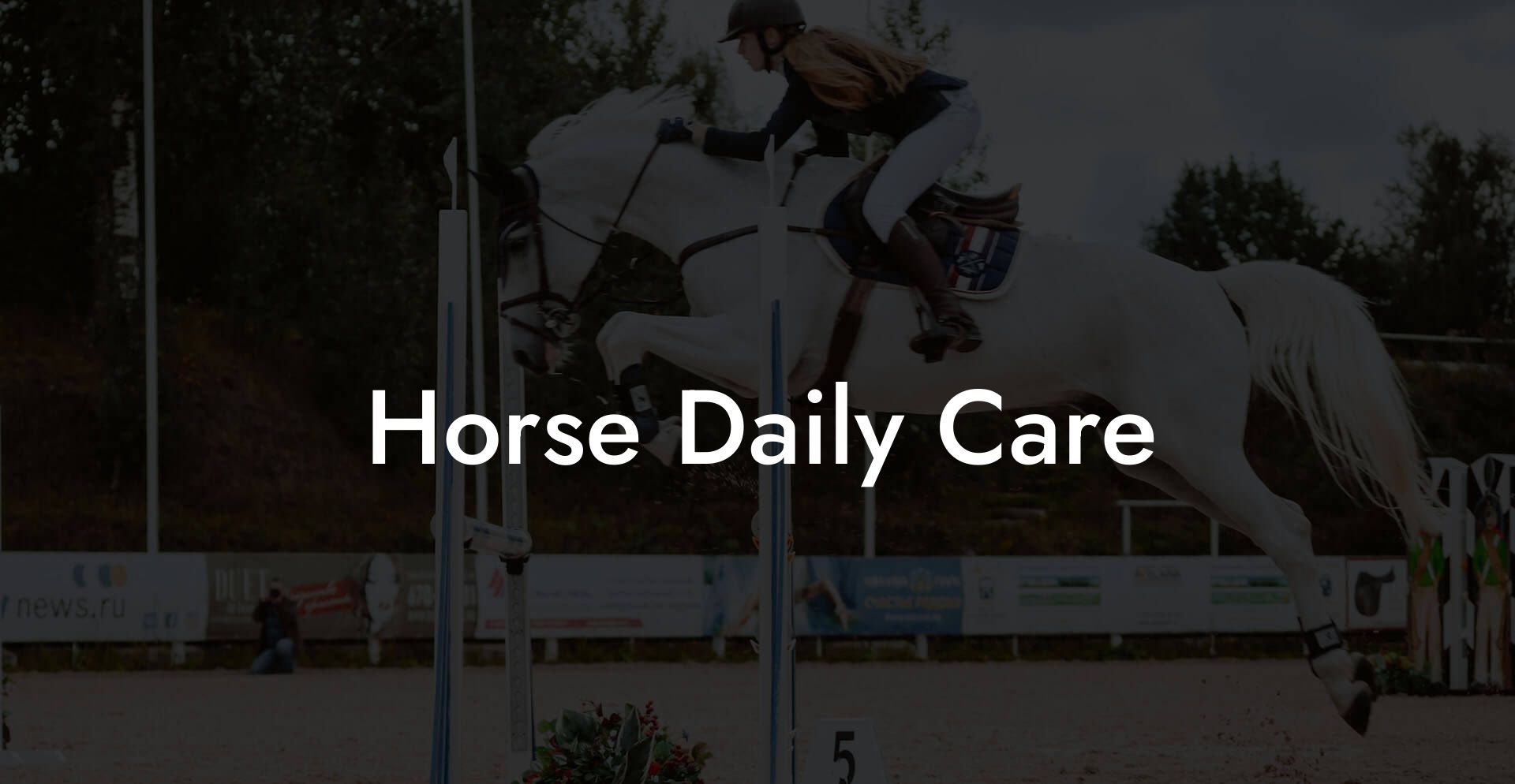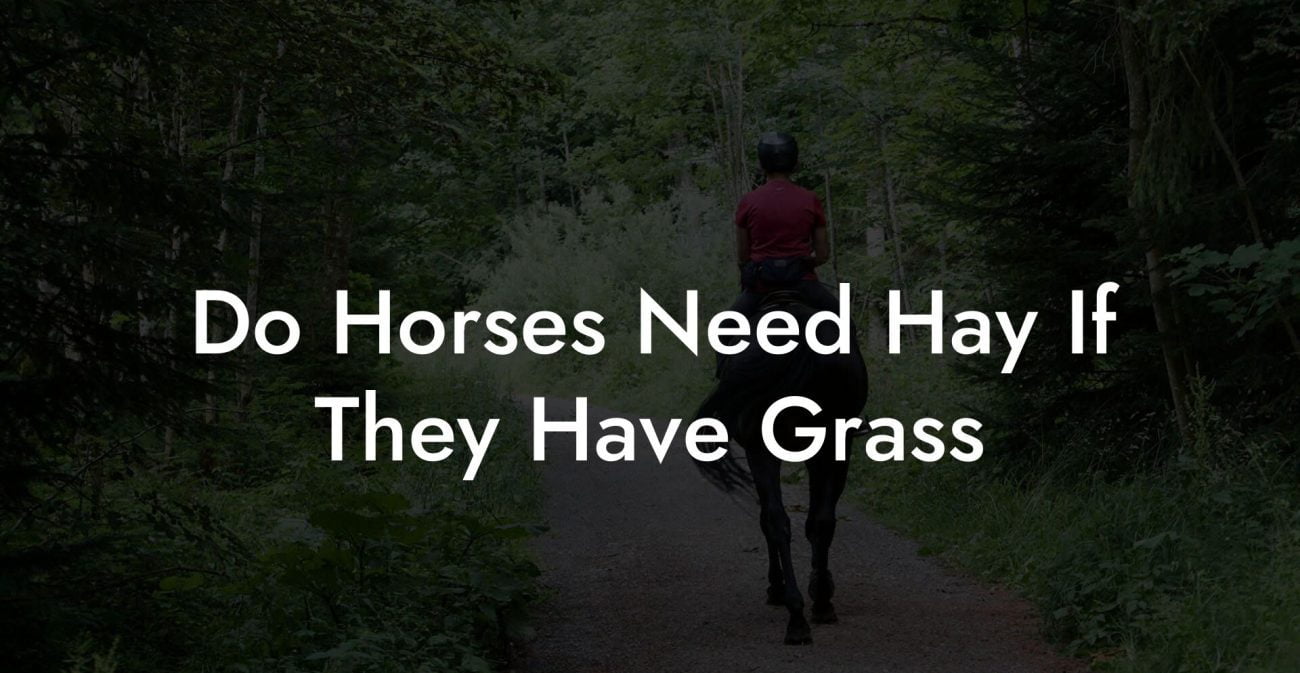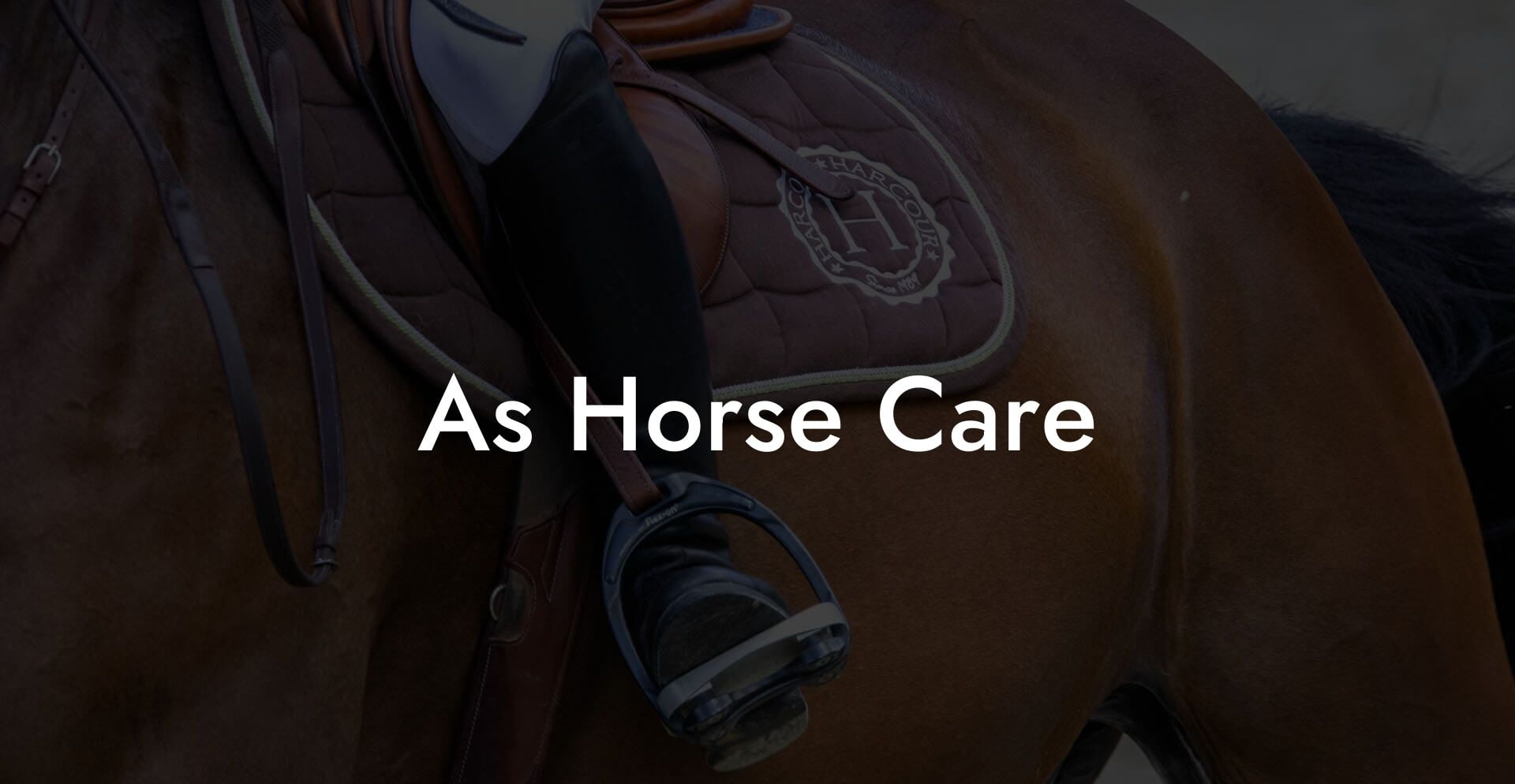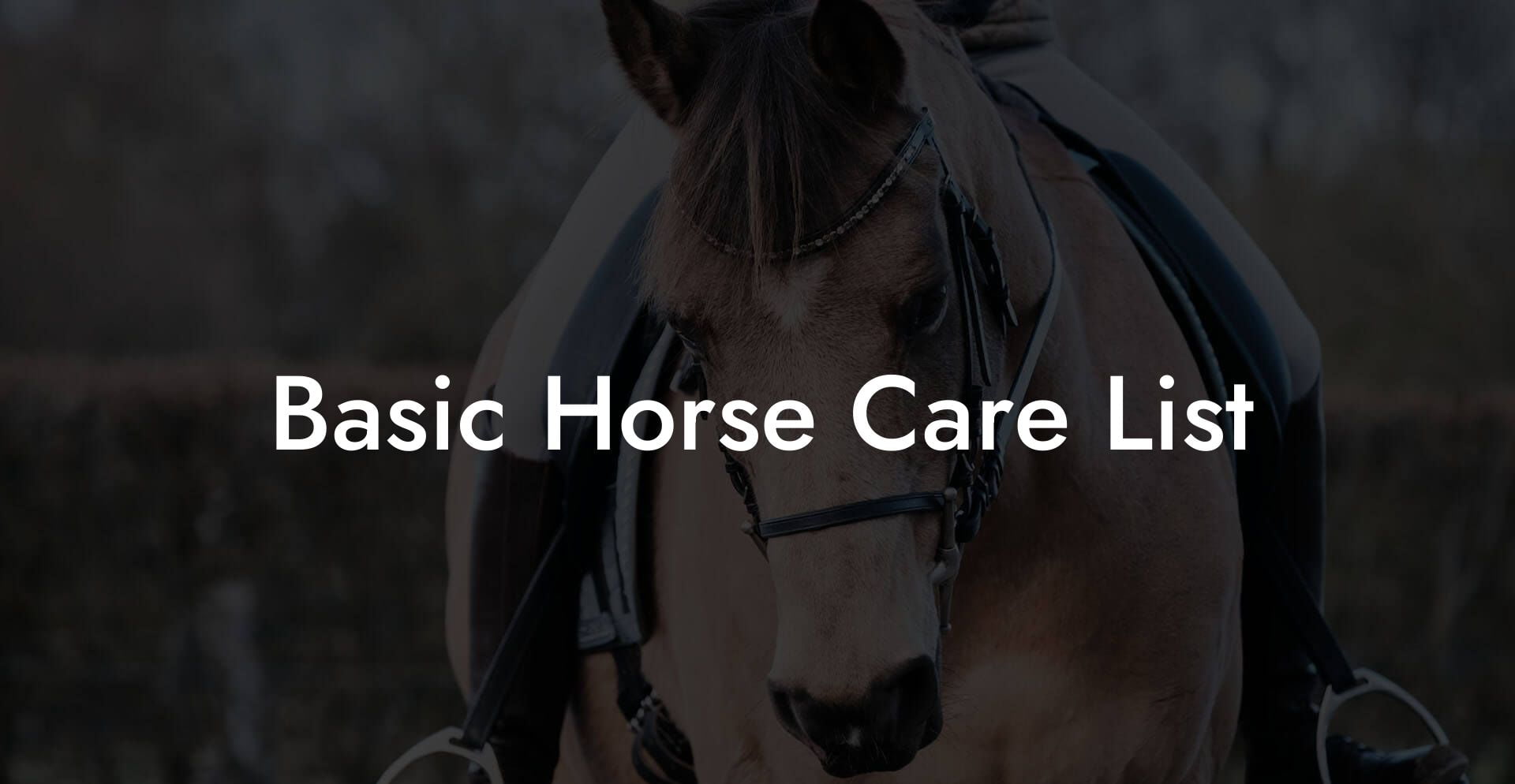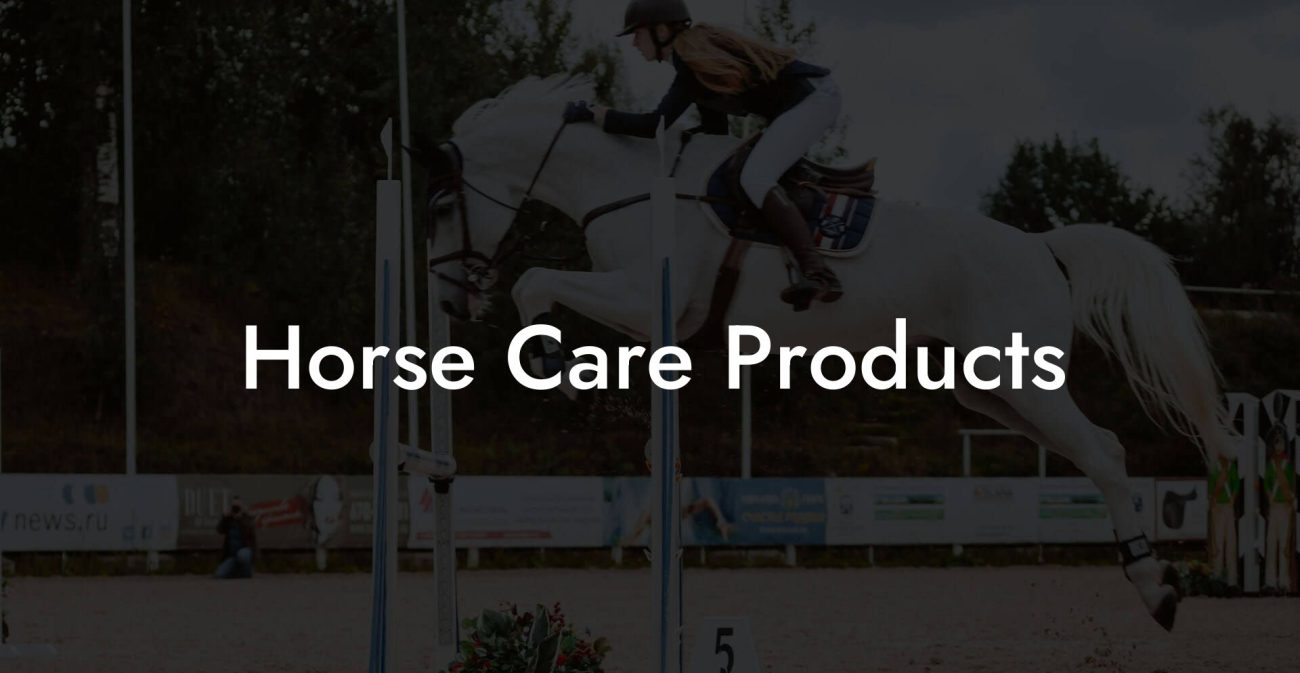There’s nothing quite like the thrill of a smooth ride, until suddenly your horse decides to pull an impromptu power-off, leaving you juggling reins and wondering if you’ve just been upstaged by your four-legged partner. If your horse keeps stopping when riding, you’re not alone. Riders from trail beginners to seasoned equestrians have all faced the mystery of a horse that seems to hit the brakes right when you least expect it. Whether it’s a message from your horse or a subtle sign of discomfort in your buddy’s body, understanding what’s going on is key to turning those awkward pauses into seamless, confident rides.
Quick Links to Useful Sections
- Decoding the Behavior: Why Your Horse Keeps Stopping Mid-Ride
- Common Causes Behind a Horse’s Sudden Stops
- Veterinary Checkups and Equine Health: The First Stop for Solutions
- Training Techniques: Re-establishing Communication and Confidence
- Groundwork and Desensitization
- Consistent Cueing
- Positive Reinforcement
- Alternative Approaches: Integrating Natural Horsemanship and Equine Mindfulness
- Equine Body Language Insights
- Mindfulness for You and Your Horse
- Environmental Influences: When the World Around Affects Your Horse
- Equipment Check: Ensuring That Everything Fits Just Right
- Proper Saddle Fitting
- Bridle and Bit Adjustments
- Regular Gear Maintenance
- Nutritional Impact: Fueling Your Horse’s Energy and Performance
- Case Studies: Real-Life Experiences and Success Stories
- Case Study 1: From Reluctant to Responsive
- Case Study 2: Overcoming Equipment Woes
- Case Study 3: The Nutrition Makeover
- Your Personalized Plan for Overcoming Horse Stopping Behavior
- Step 1: Conduct a Thorough Assessment
- Step 2: Consult with Professionals
- Step 3: Implement Multi-Faceted Solutions
- Step 4: Monitor and Adjust
- Resources and Community Support: Your Next Steps
- Frequently Asked Questions on Horse Stopping Behavior
- Your Journey Towards Confident and Consistent Riding
Decoding the Behavior: Why Your Horse Keeps Stopping Mid-Ride
When your horse stops suddenly during a ride, it can feel like an episode of “Equine Whodunit.” Does your horse have a secret vendetta against galloping, or is there a hidden discomfort causing the sudden halts? Horses, being sensitive creatures, communicate through behavior. A horse that stops might be signaling anything from physical pain and fatigue to environmental distractions and training inconsistencies.
For riders, pinpointing the root cause is as important as diagnosing a stubborn Wi-Fi signal during your binge-watching session. By looking deeper into your horse’s overall well-being, its physical health, mental state, and even its immediate environment, you can begin to unlock the mystery behind the stops. Let’s dive into the common culprits and how you can approach them with a mix of conventional wisdom and modern insights.
Common Causes Behind a Horse’s Sudden Stops
Horses are not just horses; they are seasoned communicators using body language that sometimes leaves us scratching our heads. Here are some of the top reasons why your horse might keep stopping:
- Pain or Discomfort: A sore back, aching legs, or an ill-fitting saddle can send a clear message: “I need a break!” Even minor discomfort can cause your horse to halt unexpectedly. Watch for signs like head tossing, reluctance to move forward, or even subtle changes in gait.
- Lack of Proper Training: Just like us, horses sometimes need a refresher on the basics. If your horse hasn’t been adequately trained for consistent cues or isn’t completely comfortable with specific maneuvers, it might stop out of uncertainty or confusion.
- Fear or Distracted Mindset: The world is full of startling sights and sounds, a sudden noise, a flash of movement, or even unfamiliar terrain can cause your horse to get spooked, leading to an abrupt stop.
- equipment Issues: An ill-fitting saddle or problematic bridle can lead to discomfort, prompting your horse to refuse to move. Even small gear issues can have a big impact on your ride.
- Lack of Warm-Up: Just as you wouldn’t start a marathon without stretching, your horse needs a proper warm-up. A cold muscle is a grumpy muscle, so skipping the warm-up can lead to stiffness and unexpected stops.
- Nutritional Deficiencies: Believe it or not, what your horse eats plays a big role in its energy levels and performance. An imbalanced diet can lead to fatigue and poor stamina.
Understanding these causes is the first step in turning a frustrating ride into a fulfilling experience. By addressing each factor methodically, you can improve your horse’s behavior and create a more harmonized riding experience.
Veterinary Checkups and Equine Health: The First Stop for Solutions
The first rule of troubleshooting a horse that keeps stopping when riding is to rule out any underlying health issues. Just as you wouldn’t ignore a check engine light in your car, dismissing pain or injury in your horse can lead to bigger problems down the line.
Schedule a comprehensive veterinary exam. A skilled vet can perform a physical examination, evaluate gait and muscle tone, and identify any signs of conditions like laminitis, arthritis, or other joint problems that could be causing discomfort. Remember, sometimes a subtle limp or a slight stiffness can explain why your horse decides to hit the brakes mid-gallop.
Diagnostic tools such as X-rays or ultrasounds can help pinpoint any hidden issues. Once you have a clear diagnosis, you can work together with your veterinarian on a treatment plan that might include pain management, targeted therapies, or even changes in exercise routines. Keeping your equine friend in optimal health is the foundation for a smooth ride.
Training Techniques: Re-establishing Communication and Confidence
If your horse’s stopping is more about confusion or a lack of consistent training, it’s time to work on communication. Like any relationship, achieving harmony with your horse requires trust, clear signals, and a lot of patience.
Consider these training techniques to help your horse become more responsive during rides:
Groundwork and Desensitization
Spend time working with your horse on the ground. Groundwork sessions focus on establishing respect and clear communication without the added stress of riding. Introduce obstacles or distractions gradually, allowing your horse to become desensitized to sudden noises or movements. This method builds confidence, helping ensure that stops aren’t born from fear.
Consistent Cueing
Consistency is key. Whether you’re using voice commands, body language, or rein pressure, ensure your cues are clear and uniform. Practice in a controlled environment until your horse responds naturally to your signals. Think of it as teaching your favorite playlist on repeat, the more familiar it becomes, the less likely your horse is to hit pause.
Positive Reinforcement
Reward your horse’s good behavior with treats, soothing strokes, or brief periods of rest. Positive reinforcement can help build a more trusting bond and encourage your horse to anticipate positive outcomes when it follows your lead.
Incorporating these training techniques can transform your riding sessions into smoother, more enjoyable experiences. Remember, training isn’t about perfecting every move but about creating a dialogue that makes both you and your horse feel confident.
Alternative Approaches: Integrating Natural Horsemanship and Equine Mindfulness
Sometimes, it isn’t just about the physical; it’s about the mind, too. Natural horsemanship techniques focus on understanding your horse’s behavior through empathy and clear communication. This approach sees your horse as a partner rather than a passive animal, inviting you to engage in a more emotional and instinctual dialogue.
Equine Body Language Insights
Horses communicate primarily through body language. Studying your horse’s posture, ear positions, tail movements, and facial expressions can provide invaluable clues about its state of mind. You might notice, for example, that a horse stops when its ears flatten, a classic sign of discomfort or confusion.
Mindfulness for You and Your Horse
Yes, mindfulness isn’t just for humans. Spending quiet time with your horse, free of distractions, can help establish a mutual calm. Techniques like deep breathing and quiet observation can create a soothing environment, reducing the likelihood of anxiety-induced stops.
Some riders also explore gentle massage techniques and stretching routines during cool-down periods, which can help release muscle tension in both you and your horse. Over time, these alternative approaches can lead to a more harmonious ride, where sudden stops transform into smooth transitions.
Environmental Influences: When the World Around Affects Your Horse
Picture this: You’re riding through an open field, the wind in your mane, and suddenly, a flash of movement in the corner of your horse’s eye causes it to stop. External factors like changing light, unexpected noises, or even unfamiliar smells can trigger a stop.
Factors to consider include:
- Terrain and Weather: Uneven ground, muddy paths, or overly hot conditions can lead to hesitation in your horse’s step.
- New or Unfamiliar Routes: A change in scenery might unsettle a horse that’s used to the same trail. Gradual exposure to new environments can help ease the transition.
- Presence of Other Animals: Wildlife or even other horses can distract or scare your horse, prompting it to pause unexpectedly.
Preparing your horse for variable environments by introducing diverse riding conditions during training sessions can desensitize it to potential distractions. This builds confidence that carries over to your regular rides.
Equipment Check: Ensuring That Everything Fits Just Right
In the world of equine riding, even the smallest misfit can cause the biggest hiccup. An ill-fitting saddle or poorly adjusted bridle can lead to discomfort, creating a negative association with movement and ultimately causing your horse to stop.
Here are some equipment-related tips to keep your ride on track:
Proper Saddle Fitting
A well-fitted saddle distributes your weight evenly across your horse’s back, avoiding pressure points that can lead to pain. Regular checks by a professional saddle fitter can ensure that the gear is adjusted as your horse grows or changes in muscle mass.
Bridle and Bit Adjustments
Your horse’s head is its control center. Uncomfortable or improperly fitting bridles and bits can cause discomfort and lead to behavioral issues. Make sure that the tack is suited to your horse’s size and breed, and don't hesitate to upgrade to more comfortable equipment if needed.
Regular Gear Maintenance
Checking your equipment for wear and tear should be part of your routine. Replacing worn-out straps, buckles, or padding is key to keeping your horse comfortable and focused solely on the ride.
Nutritional Impact: Fueling Your Horse’s Energy and Performance
A horse’s performance isn’t solely dependent on training and equipment, what it eats plays a critical role too. Just as you wouldn’t expect a phone to function optimally on a half-charged battery, your horse needs proper nutrition to keep its energy levels high and its muscles functioning smoothly.
Consider the following nutritional factors:
- Balanced Diet: Ensure your horse gets a balanced mix of forage, grains, and supplements. A diet lacking in essential nutrients can lead to fatigue and reduced performance.
- Hydration: Dehydration can cause muscle cramping and overall lethargy. Fresh, clean water should always be available before, during, and after a ride.
- Special Supplements: Depending on your horse’s needs, consider supplements that aid joint health, muscle recovery, and overall vitality. Always consult your veterinarian or an equine nutritionist before adding new supplements.
A well-nourished horse is more likely to respond confidently during a ride, reducing the risks of sporadic stops that stem from fatigue or discomfort.
Case Studies: Real-Life Experiences and Success Stories
Sometimes, the best way to understand a complex issue is to hear from those who have been through it. Here are some real-life examples that demonstrate how riders turned a horse that kept stopping into a ride filled with confidence and continuity:
Case Study 1: From Reluctant to Responsive
Emily, a young rider from Portland, noticed that her once enthusiastic horse, Sundance, began stopping suddenly on even the simplest trails. After ruling out health issues with her vet, Emily worked closely with a natural horsemanship trainer. They focused on desensitizing Sundance to common distractions and re-establishing clear, consistent cues through groundwork exercises. Over several weeks, Sundance slowly transitioned from a hesitant companion into a responsive partner, proving that understanding behavior and rebuilding trust can transform a rocky ride into a fluid bonding experience.
Case Study 2: Overcoming Equipment Woes
Jake, an experienced rider with a competitive edge, was perplexed when his prized mare, Bella, began to halt unexpectedly during show preparations. After a thorough equipment review, he discovered that Bella’s saddle no longer fitted correctly due to subtle changes in her musculature. With the help of a professional saddle fitter, Jake upgraded Bella’s gear and incorporated a gradual re-introduction of high-intensity training sessions. The result? Bella’s stops became a relic of the past, and Jake regained confidence in his performance.
Case Study 3: The Nutrition Makeover
In another inspiring story, a rider named Miguel noticed that his older horse, Sol, was slowing down in recent rides. Concerned about his horse’s stamina and overall health, Miguel consulted with an equine nutritionist who recommended adjustments to Sol’s diet. By increasing nutrient-dense forage, optimizing hydration, and adding joint-supportive supplements, Sol’s energy levels improved dramatically. Over time, Sol not only regained his pace but also began to show a renewed enthusiasm for rides, all thanks to a well-rounded nutritional approach.
These case studies highlight that combining veterinary care, training adjustments, equipment care, and nutritional strategies can bring about remarkable improvements in a horse’s riding consistency. Every horse is unique, and sometimes a multi-faceted approach is exactly what’s needed to crack the case of the halting ride.
Your Personalized Plan for Overcoming Horse Stopping Behavior
Developing a personalized action plan is your roadmap out of riding frustration. The key is to be observant, patient, and proactive in addressing the multiple facets that contribute to your horse’s behavior. Here’s a step-by-step guide to create a tailored plan:
Step 1: Conduct a Thorough Assessment
Start by closely observing your horse both on and off the saddle. Note any changes in behavior, physical symptoms, or reactions to different riding environments. Maintaining a riding journal can help track patterns and triggers that lead to sudden stops.
Step 2: Consult with Professionals
Don’t hesitate to seek the advice of professionals. Whether it’s a trusted veterinarian, a professional trainer, or a saddle fitter, expert guidance can clarify whether your horse’s stops are due to health concerns, training gaps, or equipment issues.
Step 3: Implement Multi-Faceted Solutions
Once you’ve identified potential issues, implement interventions systematically. Combine veterinary treatment or checkups with adjustments in training regimes and environmental management. For instance, if your observation points toward “fear factors” triggered by a busy trail, consider alternate routes and gradual exposure in a controlled setting.
Step 4: Monitor and Adjust
Like any good strategy, the plan should evolve. Track your progress, and be ready to tweak routines as your horse’s behavior improves. Regular re-assessments with your support team will help ensure you’re on the right track.
A well-crafted, personalized plan not only resolves the issue of a horse that keeps stopping but also paves the way for a deeper and more satisfying connection between you and your partner in the arena.
Resources and Community Support: Your Next Steps
Overcoming riding hiccups is not a solo journey. The equestrian community is a vibrant network of enthusiasts, specialists, and fellow riders who understand the ups and downs of equine behavior. Engage with local riding clubs, online forums, and social media groups where stories and solutions are shared daily.
Check out resources such as equine wellness centers, training clinics, and workshops that focus on natural horsemanship and equine behavior. These communities not only offer practical advice but also provide a supportive environment where you can swap stories, celebrate improvements, and learn about the latest in equine health innovations.
Additionally, many equestrian blogs and YouTube channels feature in-depth troubleshooting guides, equipment reviews, and success stories from riders who have navigated similar challenges. The path to resolving those relentless stops might just be a forum post or a video tutorial away.
Frequently Asked Questions on Horse Stopping Behavior
If you’re still left with questions after diving into the ins and outs of why your horse keeps stopping when riding, you’re in luck. Here are some of the most frequently asked questions, answered in an engaging and straightforward manner.
1. Why does my horse suddenly stop during a ride?
Your horse may stop unexpectedly due to pain or discomfort, training inconsistencies, environmental distractions, or even stress. A careful assessment of your horse’s overall condition and equipment can help identify the trigger.
2. How can I tell if it’s a health issue causing the stops?
Watch for other signs such as limping, unusual gait, changes in appetite, or reluctance to move. If these symptoms persist, it’s best to consult your veterinarian for a comprehensive examination.
3. What training techniques work best to overcome this behavior?
Groundwork, consistent cueing, and positive reinforcement are all effective. Focusing on natural horsemanship methods and desensitization can also rebuild your horse’s confidence and responsiveness.
4. Can equipment issues really cause my horse to stop?
Absolutely. An ill-fitting saddle or uncomfortable bridle can lead to physical discomfort, making your horse hesitant to move forward. Regular gear checks and professional fitting are essential.
5. Does nutrition play a role in my horse’s stopping behavior?
Yes, a balanced diet coupled with proper hydration is crucial for maintaining energy levels and muscle function. Nutritional deficiencies can lead to fatigue and discomfort, which may cause your horse to stop unexpectedly.
6. How do I create a personalized plan to solve this issue?
Start with a thorough assessment of your horse’s behavior, consult professionals (vet, trainer, saddle fitter), and create a step-by-step plan that addresses health, training, equipment, and nutritional factors. Monitor progress and adjust as needed.
7. Are alternative approaches like equine mindfulness effective?
Many riders find that techniques like mindfulness, natural horsemanship, and desensitization significantly reduce stress and improve overall riding performance. A calm, focused mindset benefits both you and your horse.
Your Journey Towards Confident and Consistent Riding
When your horse keeps stopping in the middle of your ride, it might feel like the universe is throwing constant speed bumps in your way. But every challenge is an opportunity to deepen the connection with your equine partner, to better understand its needs, and to evolve together. With a combination of veterinary care, smart training techniques, the right equipment, nutritional adjustments, and even some mindful moments together, you can transform those unpredictable stops into a dialogue, a conversation that leads to trust and confidence.
The journey to a smooth, consistent ride is rarely linear. It’s a process of trial, error, and lots of learning along the way. Each time you diagnose a small detail, be it a slight discomfort in the saddle, a miscommunication in cues, or even an external distraction, you’re taking a step towards a more harmonious riding experience. And ultimately, isn’t that what every rider aspires to?
Embrace every moment on horseback, not just the gallops and victories, but also the stops and pauses that force you to re-evaluate and reframe the experience. Your perseverance, coupled with the insights you gain along the way, transforms every challenge into a stepping stone towards becoming a more confident, mindful rider. So, gather the tools, lean on the community, and let your journey of discovery continue, both for you and for the magnificent horse that shares your path.

